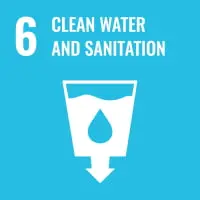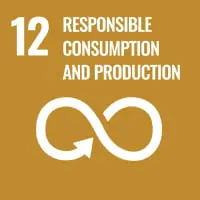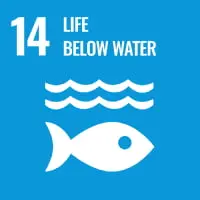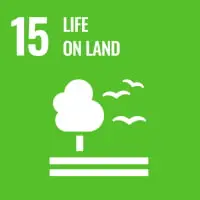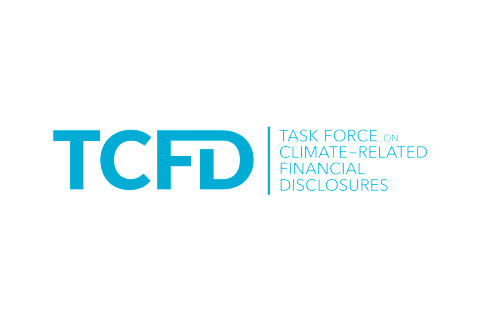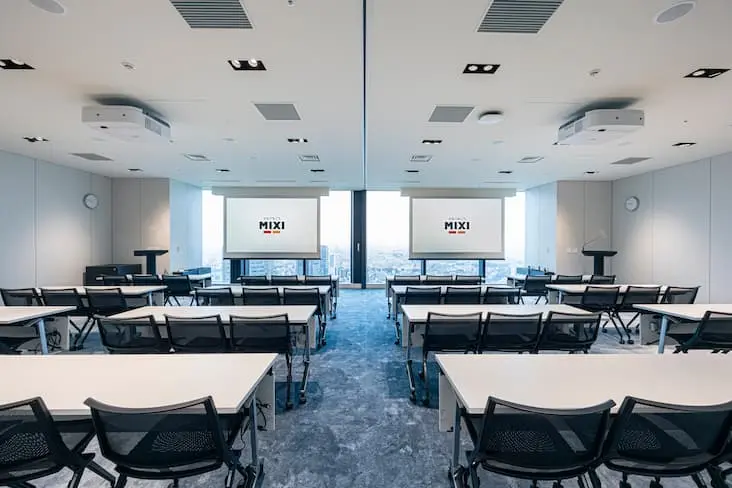SUSTAINABILITY
Disclosure Based on TNFD Recommendations
Issues related to the environment and biodiversity become more serious with each passing year. Companies must precisely understand the impact of their business activities on nature and biodiversity, reduce that impact, and assume social responsibility through conservation efforts. MIXI announced its support for the TNFD* recommendations in May 2025 and discloses the following information based on those recommendations. We will continue to monitor the impact our business activities have on biodiversity and disclose information when appropriate.
*The Taskforce on Nature-related Financial Disclosures, an international initiative to assess and disclose corporate risks and opportunities related to natural capital

Items Based on the TNFD’s General Requirements
1. Application of Material Issues
We aim to use communication to inspire joy and togetherness and enrich the future with delight by creating deeper, richer connections between people. To help us realize this goal, we have identified eight material issues. When designating these material issues, we evaluated not only the importance of each material issue to our corporate activities, but also its importance to our stakeholders based on meetings with them and international guidelines. We will continually consider risks and opportunities while also taking the importance of material issues to stakeholders into account.
2. Scope of Disclosure
We analyze points where the direct operations of our Digital Entertainment, Sports, and Lifestyle segments intersect with the natural environment.
3. Areas With Nature-Related Issues
Regarding the direct operations of our Digital Entertainment, Sports, and Lifestyle segments, the dependence and impact of each segment, proximity to critical biodiversity areas, and water risks were evaluated using the LEAP approach* as a reference. No areas with significant nature-related issues were identified during the timeframe covered.
*An evaluation method developed by TNFD to assess nature-related issues such as points of contact with nature, dependence on nature, impacts, risks, and opportunities. The approach has four steps: Locate, Evaluate, Assess, and Prepare.
4. Integration With Sustainability-Related Disclosures
We take the interaction between climate change and natural capital into account in our assessment of nature-related issues. Although no significant nature-related issues have been identified at this time, we will consider how best to achieve consistency with climate change and other issues as we expand the scope of disclosure in the future.
(Reference) Disclosure Based on TCFD Recommendations: https://mixi.co.jp/en/sustainability/issue/environment/tcfd/
5. Timeframes
We define our timeframes as follows. The short term is as until the end of 2026, the medium term is until the end of 2030, and the long term is from 2031 on.
6. Stakeholder Engagement
If significant nature-related issues are identified in the future, we will engage with relevant stakeholders in accordance with the MIXI Group Human Rights Policy and the MIXI Group Business Conduct Guidelines.
Items Based on TNFD Disclosure Recommendations
Governance
The CFO, director, and senior corporate officer in charge of the department responsible for sustainability operations is designated as the person responsible for responding to nature-related issues (hereinafter, the “Head of Sustainability”). The Sustainability Secretariat, an advisory body to the Head of Sustainability, reviews our response to nature-related issues at least once a year and reports the results of the review to the Board of Directors through the Head of Sustainability at least once a year. The Sustainability Secretariat seeks advice from the Risk Management Committee as appropriate and conducts interviews with each department and Group company as necessary in order to identify and assess dependencies, impacts, risks, and opportunities related to nature and to consider how to respond to them. The Sustainability Secretariat also conducts annual reviews of nature-related dependencies, impacts, risks, and opportunities and the progress of response measures. We have established the MIXI Group Human Rights Policy and the MIXI Group Business Conduct Guidelines, and our Head of Sustainability and the Sustainability Secretariat will ensure that human rights are given due consideration with regard to regional communities and other stakeholders when addressing nature-related issues.
Strategies
We use the LEAP approach as a reference as we analyze nature-related issues related to the direct operation of our Digital Entertainment, Sports, and Lifestyle segments. For the analysis, we used tools such as ENCORE¹, IBAT², and WRI Aqueduct³ to assess dependence and impact for each business segment, proximity to critical biodiversity areas, and presence of water risks. In the business segments covered, none of the operations were rated as highly dependent or impactful on natural capital, and water risks were not high for any operating location. In the future, we will expand the scope of our analysis in line with changes in our businesses and consider scenario analysis to identify risks and opportunities. See the heat map below for dependence and impact on natural capital by business segment.
1. ENCORE (Exploring Natural Capital Opportunities, Risks and Exposure): A tool for assessing the dependence and impact of a project on nature
2. IBAT (Integrated Biodiversity Assessment Tool): A tool for analyzing biodiversity risks in a specific region
3. WRI Aqueduct: A tool developed by the World Resources Institute (WRI) to analyze water risks (pollution, flooding, drought, etc.) around the world
Risk and Impact Management
The Sustainability Secretariat uses the LEAP approach as a reference to identify and assess nature-related dependencies and impacts. Going forward, we will identify nature-related risks and opportunities associated with any businesses that have been identified as having significant dependencies or impacts, and assess and establish response measures. When appropriate, advice on nature-related impacts and risks will be sought from the Risk Management Committee in order to manage them in an integrated manner with other risks. Any serious nature-related dependencies, impacts, risks, and opportunities are reported to the Board of Directors by the Head of Sustainability.
Dependence
VL = Very Low, L = Low, M = Medium, H = High, VH = Very High
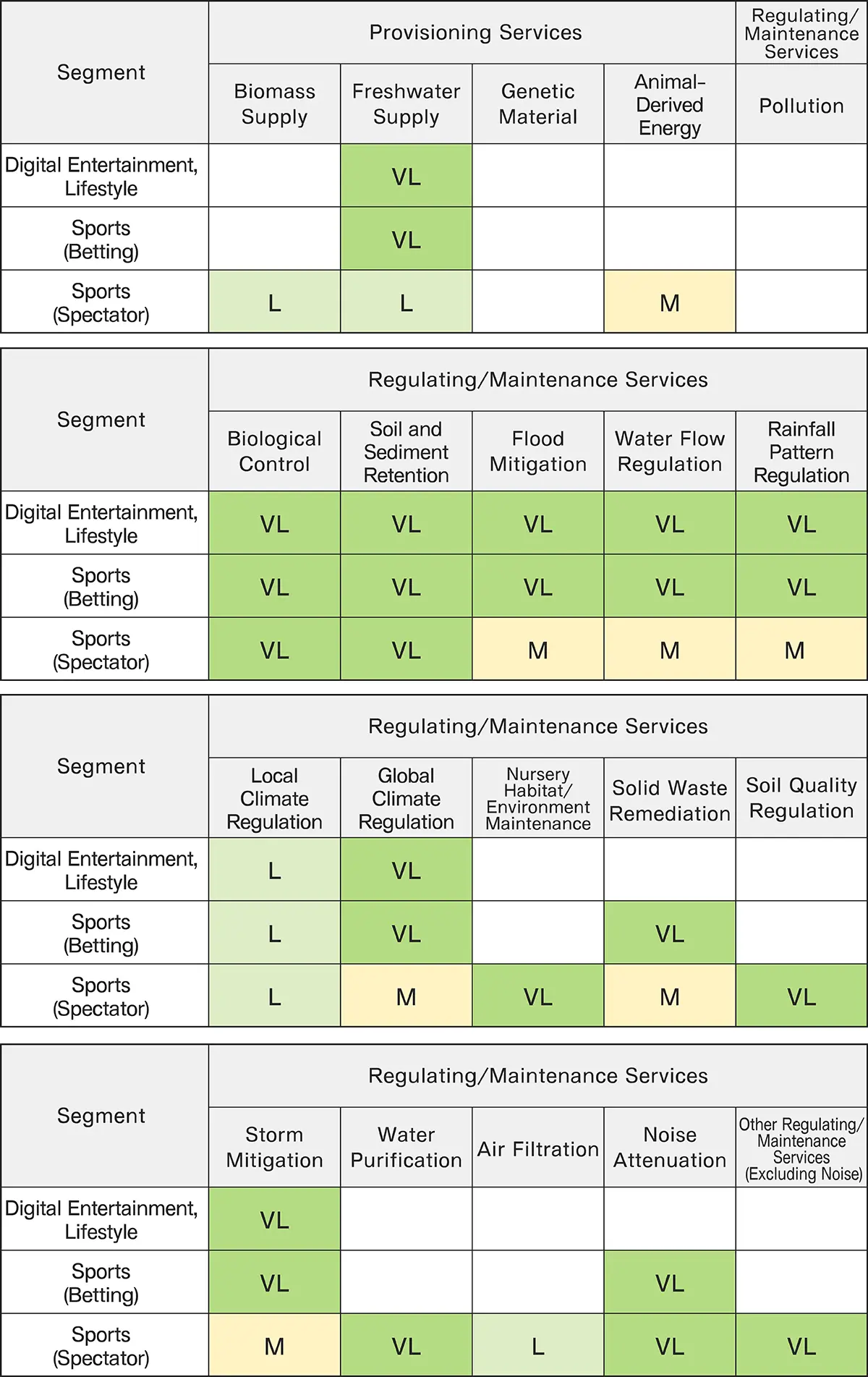
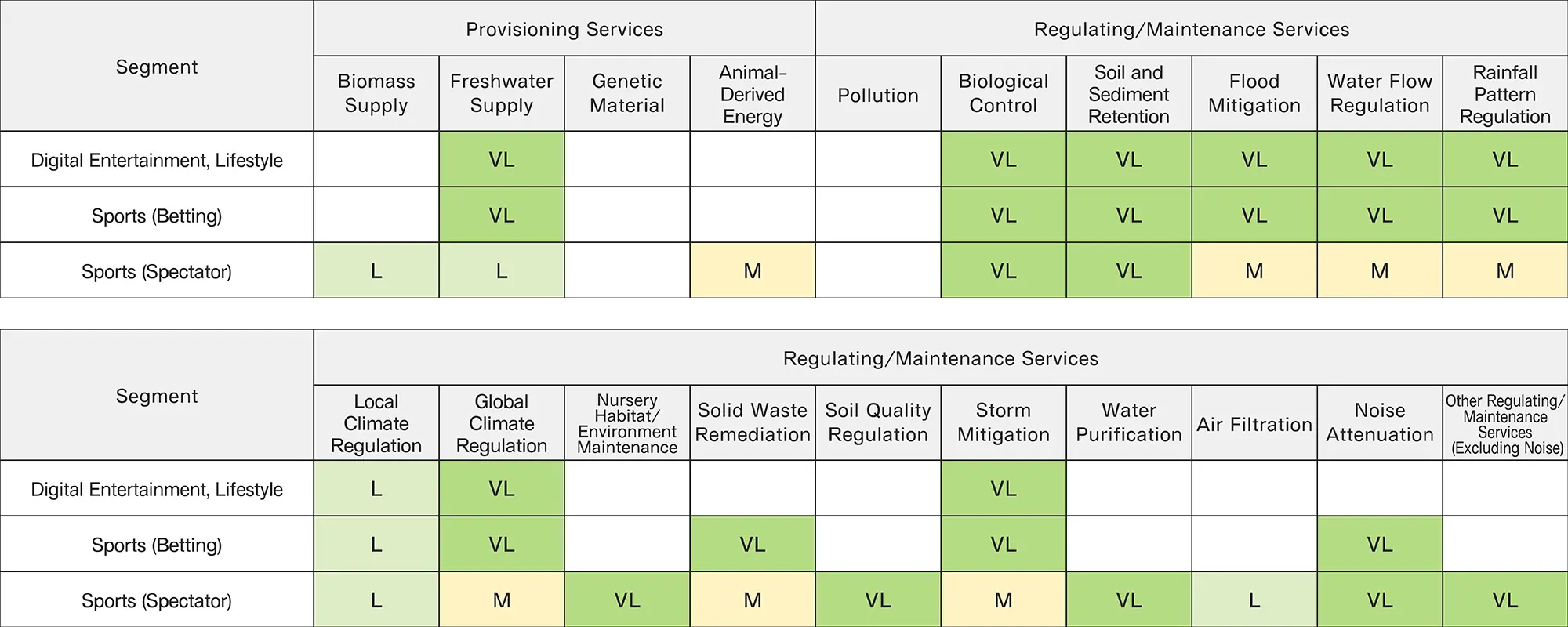
Impact
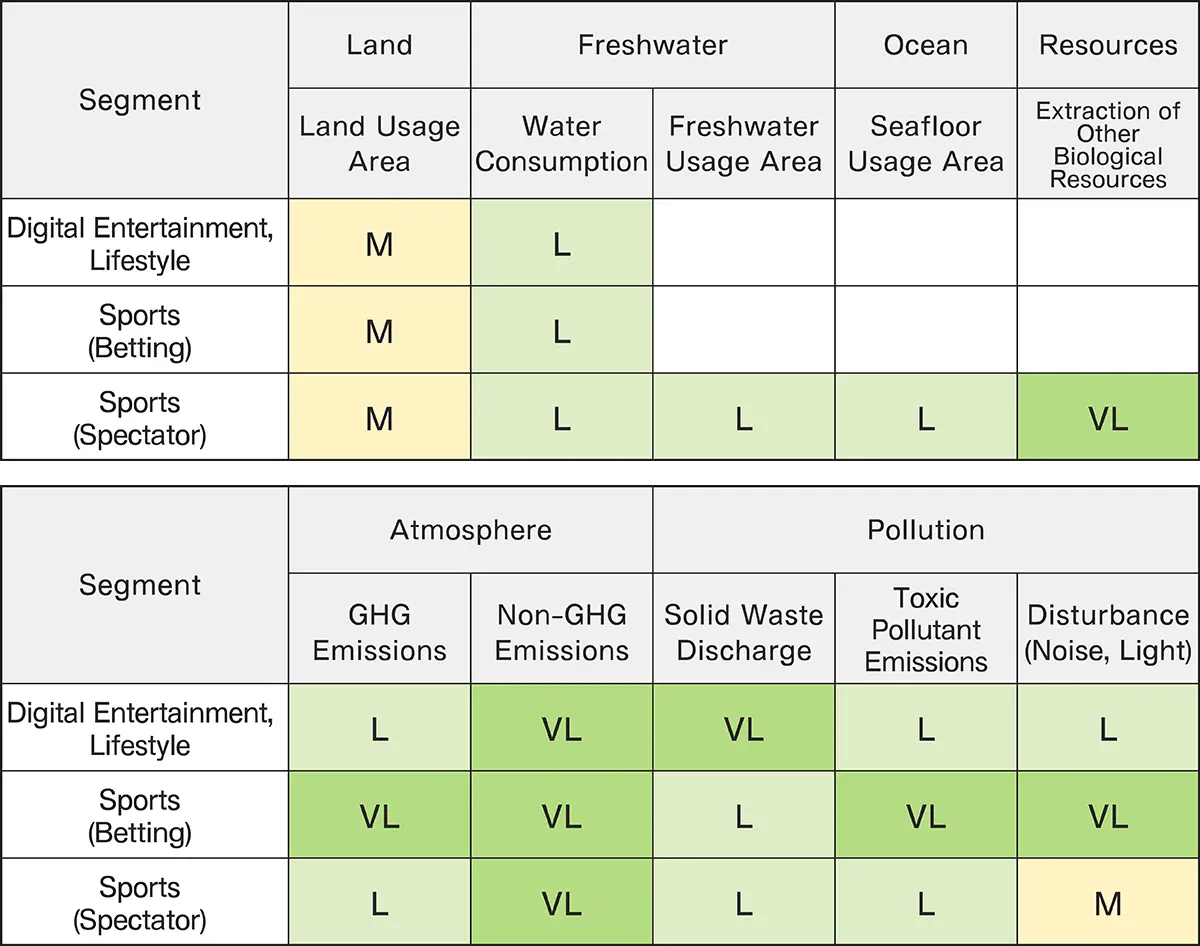

CDP Questionnaire Response
Since 2022, MIXI has been responding to questionnaires published by CDP, an international non-profit organization engaged in environmental information disclosure. In 2025, we received a “B” in the Climate Change category and a “B-” in the Water Security category. In addition, we adhere to TNFD recommendations for our disclosures, including those found in our securities reports.













